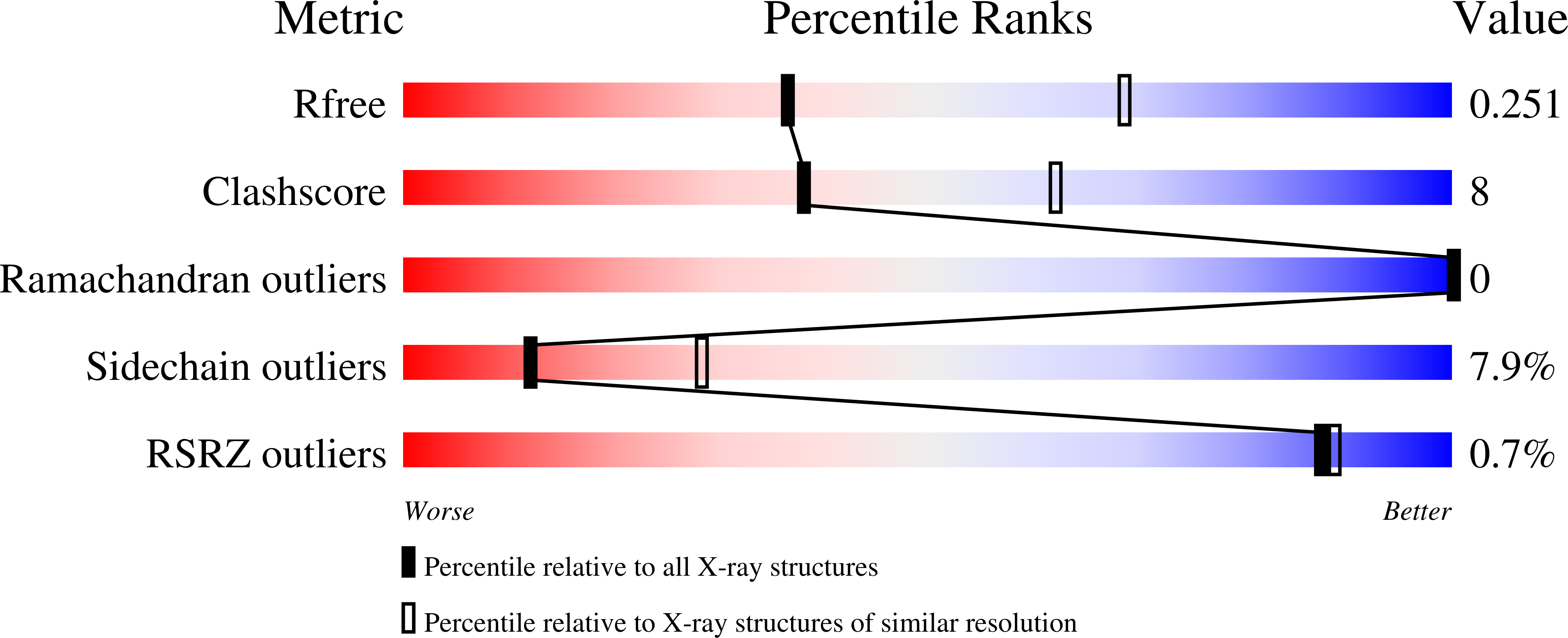Structural analysis of the Ras-like G protein MglA and its cognate GAP MglB and implications for bacterial polarity.
Miertzschke, M., Koerner, C., Vetter, I.R., Keilberg, D., Hot, E., Leonardy, S., Sogaard-Andersen, L., Wittinghofer, A.(2011) EMBO J 30: 4185-4197
- PubMed: 21847100
- DOI: https://doi.org/10.1038/emboj.2011.291
- Primary Citation of Related Structures:
3T12, 3T1O, 3T1Q, 3T1R, 3T1S, 3T1T, 3T1V, 3T1X - PubMed Abstract:
The bacterium Myxococcus xanthus uses a G protein cycle to dynamically regulate the leading/lagging pole polarity axis. The G protein MglA is regulated by its GTPase-activating protein (GAP) MglB, thus resembling Ras family proteins. Here, we show structurally and biochemically that MglA undergoes a dramatic, GDP-GTP-dependent conformational change involving a screw-type forward movement of the central β2-strand, never observed in any other G protein. This movement and complex formation with MglB repositions the conserved residues Arg53 and Gln82 into the active site. Residues required for catalysis are thus not provided by the GAP MglB, but by MglA itself. MglB is a Roadblock/LC7 protein and functions as a dimer to stimulate GTP hydrolysis in a 2:1 complex with MglA. In vivo analyses demonstrate that hydrolysis mutants abrogate Myxococcus' ability to regulate its polarity axis changing the reversal behaviour from stochastic to oscillatory and that both MglA GTPase activity and MglB GAP catalysis are essential for maintaining a proper polarity axis.
Organizational Affiliation:
Structural Biology Group, Max-Planck-Institute for Molecular Physiology, Dortmund, Germany.



















